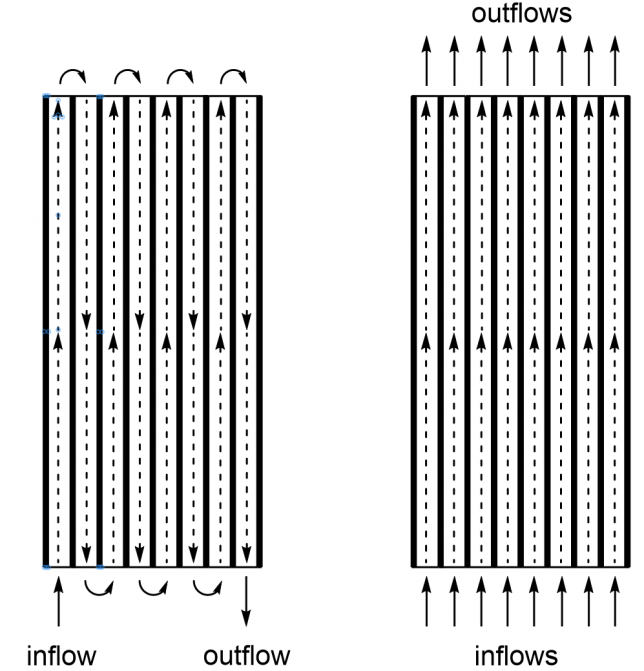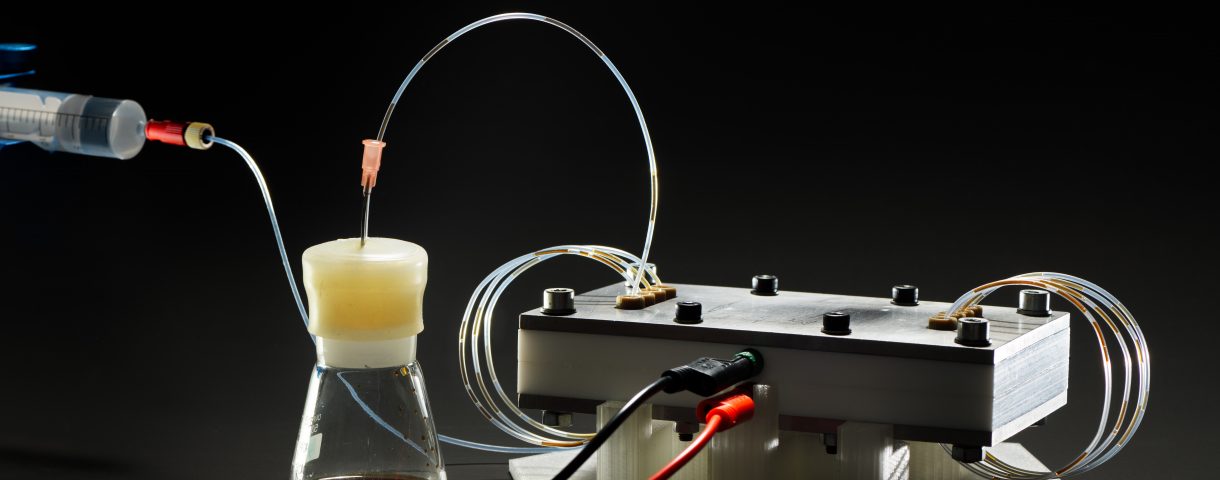Since the 21st century, the electrochemical evolution has been gaining traction in the chemistry/chemical engineering field. For organic electrochemical synthesis, many important advantages have been demonstrated, including exquisite reaction control and avoidance of toxic oxidants and reductants. In accordance with the developing and reforming pathway in modern times, our group presents an independently researched and developed electrochemical reactor. The highly modular construction possesses technological advances which allows to energize the organic electrochemical field. Profiting from the modularized components, it provides an enhanced reproducibility and scalability. Currently, our group is applying this novel reactor design in a variety of newly developed electrochemical transformations.

Representative publications:
-
- The Fundamentals Behind the Use of Flow Reactors in Electrochemistry. Noël, T.; Cao, Y.; Laudadio, G. Accounts of Chemical Research 2019, 52 (10), 2858-2869
- Sulfonyl Fluoride Synthesis through Electrochemical Oxidative Coupling of Thiols and Potassium Fluoride. Laudadio, G.; Bartolomeu, A. de A.; Verwijlen, L. M. H. M.; Cao, Y.; de Oliveira, K. T. and Noël, T. Journal of the American Chemical Society 2019, 141 (30), 11832-11836
- Sulfonamide Synthesis through Electrochemical Oxidative Coupling of Amines and Thiols. Laudadio, G.; Barmpoutsis, E.; Schotten, C.; Struik, L.; Govaerts, S.; Browne, D.L. and Noël, T. Journal of the American Chemical Society 2019, 141 (14), 5664–5668
- Efficient Electrocatalytic Reduction of Furfural to Furfuryl Alcohol in a Microchannel Flow Reactor. Cao, Y. and Noël, T. Organic Process Research & Development 2019, 23 (3), 403-408
- An environmentally benign and selective electrochemical oxidation of sulfides and thiols in a continuous-flow microreactor. Laudadio, G.; Straathof, N. J. W.; Lanting, M. D.; Knoops, B.; Hessel, V. and Noël, T. Green Chemistry 2017, 19, 4061-4066

